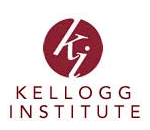
When immigrants send small sums of money back to their families in their underdeveloped home countries, many economists believe it makes a significant impact on the global economy. Currently, 150 million such migrants, sending home $300 billion in what economists callremittances,are attempting to help lift one billion people in the developing world out of poverty.
Income in the form of remittances fuels economic innovation and gives rise to new market demands. However, the human costs of immigration can be high. Home countries lose many of their most enterprising and skilled citizens. Family bonds are weakened. Lives are lost as migrants attempt dangerous journeys to new countries.
Immigration and Remittances: Global Trends and Challenges,a roundtable organized by Jeffrey Bergstrand, professor of finance at the University of Notre Dame, will explore the growing phenomena around the world. The discussion will take place at 4:15 p.m. Nov. 6 (Thursday) in the auditorium of Notre Dames Hesburgh Center for International Studies. A reception will follow the event, which is open to the public.
Participants in the roundtable include:Ralph Chami, director of the Middle East division of the IMF Institute, International Monetary Fund; B. Lindsay Lowell, director of policy studies at the Institute for the Study of International Migration at Georgetown University; and Donald Terry, former manager of the Multilateral Investment Fund of the Inter-American Development Bank. Luis Cosenza, the Hewlett Visiting Fellow for public policy at Notre Dames Kellogg Institute for International Studies and former minister of the presidency in Honduras, will serve as moderator.
The discussion will explore questions such as: What impact do remittances have on the economies of developing countries, at both the household and national levels? What are the policy implications of immigration and remittances to governments around the world? And what are the costs for the individuals and countries involved in this global flow of people and funds?
Growing immigration coupled with remittances is of keen interest to policymakers and scholars investigating the consequences of this largely unexplored financial activity between developed and underdeveloped nations.
The event is cosponsored by the Kellogg Institute and Notre Dames Mendoza College of Business and Latin American Studies Program.
_ Contacts: Elizabeth Rankin, writer/editor, Kellogg Institute, 574-631-9184,_ " erankin3@nd.edu ":mailto:erankin3@nd.edu ;or Therese Hanlon, events coordinator, Kellogg Institute, 574-631-4150, " Therese.Hanlon@nd.edu ":mailto:Therese.Hanlon@nd.edu
TopicID: 30206